Every autumn, Korea comes alive with the sights, sounds, and flavours of Chuseok. More than just a holiday, it’s a vibrant celebration of tradition, family, and the harvest season, offering both locals and visitors a chance to explore Korea’s rich cultural heritage.
Also read: South Korea Fall Foliage 2025 Forecast: When & Where to See Autumn Leaves
What and when is Chuseok
Chuseok, often called Korea’s Thanksgiving, is the nation’s most important autumn festival, observed on the 15th day of the lunar calendar. Chuseok coincides with the year’s largest full moon, symbolising abundance and prosperity. Traditionally, families gather to honour their ancestors through Charye (Memorial Service for Ancestors), share festive meals, and enjoy seasonal activities, making it one of the most culturally rich and widely celebrated festivals in both North and South Korea.
In 2025, it falls from 5 to 8 October. Traditionally, families reunite to honour ancestors, share festive meals, and celebrate the harvest, but it also offers visitors a chance to experience Korean culture, heritage, and seasonal festivities.
Free cultural experiences during Chuseok
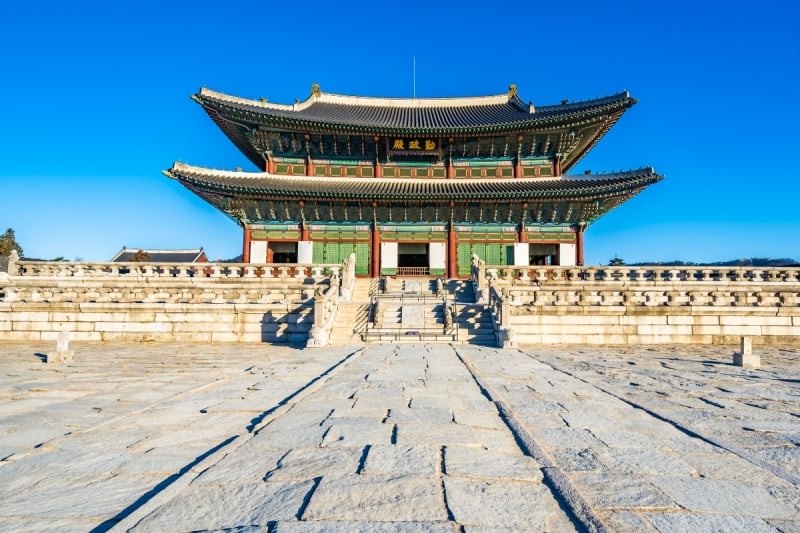
Image credit: Siraphol via Canva Pro
This year, during Chuseok, the Korea Heritage Service opens several major historical sites free of charge, including Gyeongbokgung, Changdeokgung, Changgyeonggung, Deoksugung, Jongmyo Shrine, and the Joseon Royal Tombs. Visitors can watch the royal guard changing ceremony at Gyeongbokgung without reservations, while other highlights include traditional court dessert tastings and the Moonlight Night Tour at Changdeokgung. The Fall K-Royal Culture Festival adds interactive programmes such as talks, workshops, palace-themed stamp tours, and street parades for an immersive cultural experience.
Seasonal foods
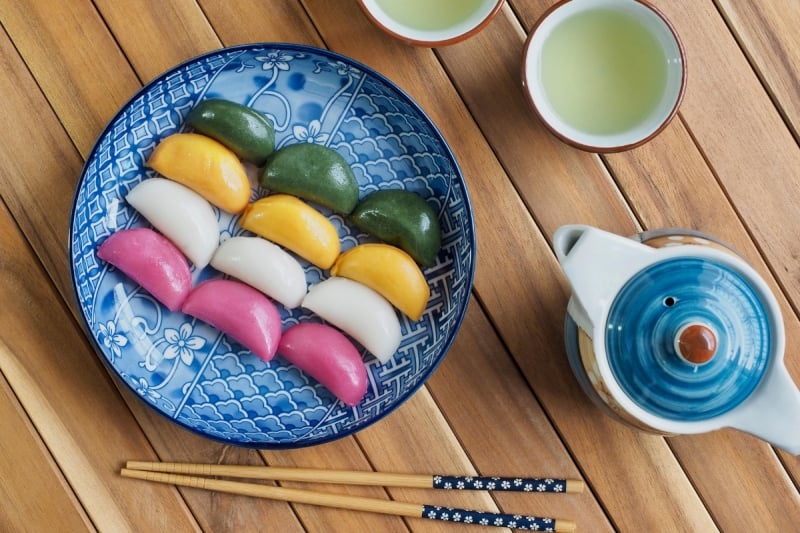
Image credit: sungsu han via Canva Pro
Chuseok is synonymous with songpyeon, crescent-shaped rice cakes filled with sesame, chestnut, or red bean paste. Families also prepare hanjeongsik, a full-course traditional meal featuring seasonal fruits, nuts, and Korean pancakes. Markets bustle with roasted chestnuts, tteok, persimmons, and Korean pears, offering a taste of Korea’s autumn harvest.
Activities and sightseeing
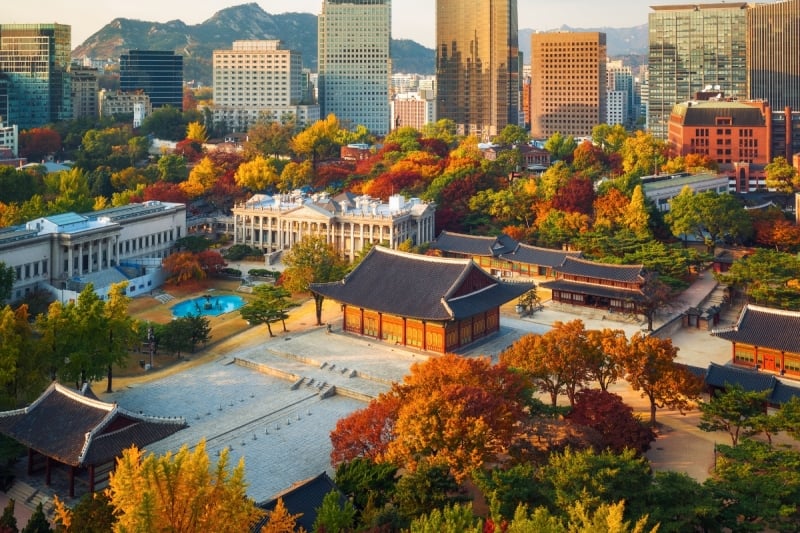
Image credit: NeoPhoto via Canva Pro
Visitors can attend folk games and cultural performances, and stroll through palaces and parks to admire autumn foliage. Many palaces also host live music, dance, and storytelling events during Chuseok. Theme parks such as Lotte World and Everland remain open, though crowds are often heavier than usual, making early arrival or express passes advisable.
Stores and transport
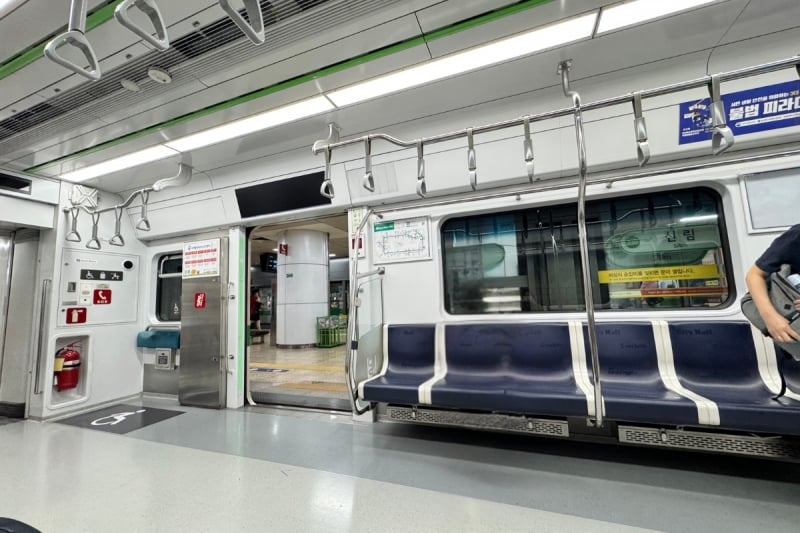
During Chuseok, banks, post offices, and many small shops close, while convenience stores and large department stores typically remain open with reduced hours. Public transport continues to operate but is heavily crowded. Major train stations, bus terminals, and subway lines experience peak congestion, so booking tickets in advance and travelling at off-peak times is recommended.
Incheon Airport sees significant congestion during Chuseok, worsened by a one-day strike on 19 September 2025. Travellers should arrive 3–4 hours early, use online check-in and baggage drop services, pack carry-on essentials, and monitor airport updates. Flexibility is essential, as delays are likely.
Accommodation
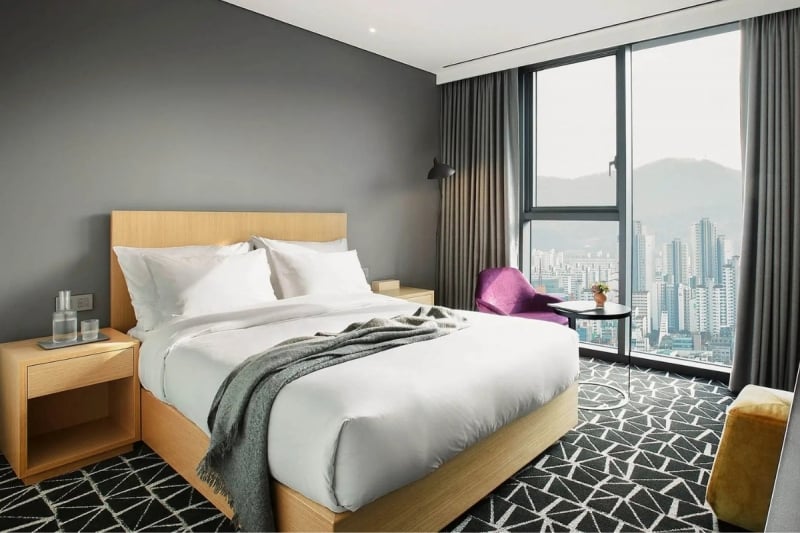
Image credit: lottehotel Official Website
Hotels in Seoul and other popular destinations fill quickly. Booking early and staying near subway lines or major transport hubs ensures smoother travel during the holiday.
Weather and packing
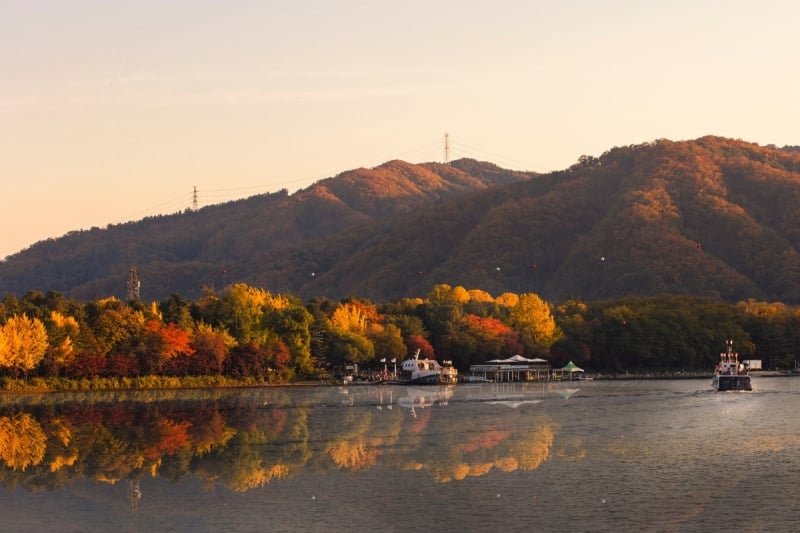
Image credit: kamponwarit via Canva Pro
Autumn in Korea is generally mild, with temperatures ranging from 15°C to 23°C in October. Light layers, comfortable walking shoes, and a small umbrella or raincoat are recommended, particularly for palace visits and outdoor markets.
Cultural etiquette
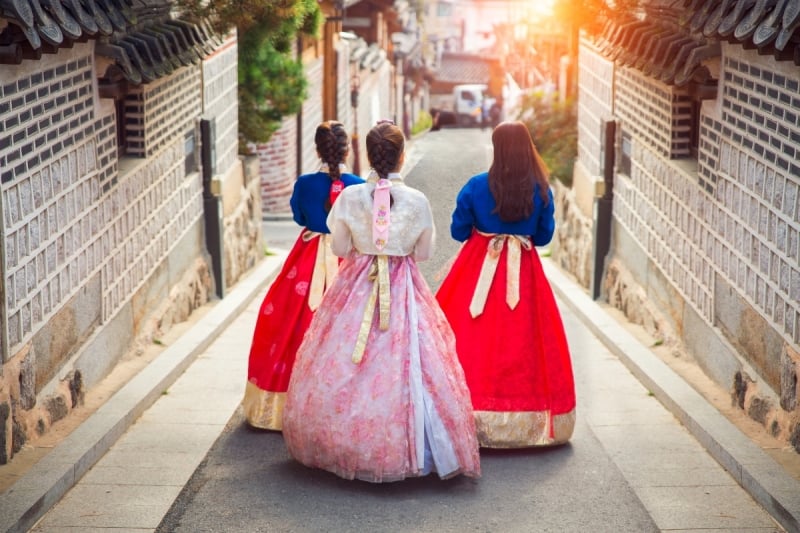
Image credit: NeoPhoto via Canva Pro
Chuseok is steeped in tradition. Visitors should respect local customs such as bowing to elders, sharing food, and bringing small gifts if joining family gatherings. Observing these practices enhances the experience and fosters a genuine connection with Korean culture.
Also read: 7 Best Hanbok Rentals in Seoul Near Gyeongbokgung Palace




